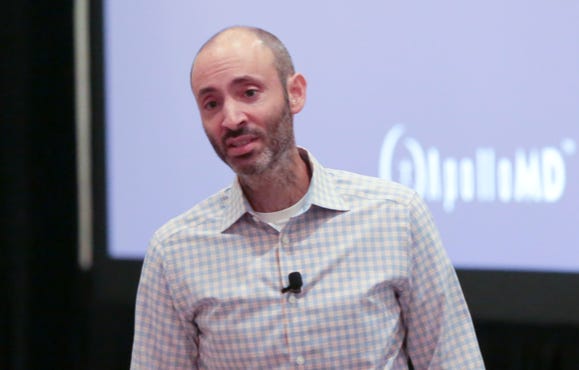Taxes in retirement: What to expect
Social Security benefits and savings can be taxed, but tax bills generally fall.
With tax day looming, The New York Times Sunday business section this weekend focuses on . . . you guessed it. As part of a broader series of articles about taxes, I took a look at the ways retiree income is taxed.
The overall tax burden for high-income retirees generally stays about the same, but it falls sharply for most people.
My story examines the key types of income taxes retirees pay, including:
Social Security: retirees with relatively higher incomes pay income taxes on part of their benefits. I say relatively, because the income triggers really are not all that high - and they are not indexed for inflation. That means more retirees paying taxes on benefits over time.
Savings and pensions: Income from sources that haven’t been taxed yet, such as 401(k) and individual retirement accounts or a defined benefit pension.
Medicare: Higher-income seniors pay surcharges on Part B and Part D premiums that, while not technically taxes, certainly feel like it to retirees.
States: Many states exempt retirement income, although the specifics vary widely.
Finally, we consider some ways to be as tax-efficient as possible. That includes Roth contributions or conversions, Health Savings Accounts and Qualified Charitable Distributions.
You can find my story for the Times here.
What to expect when Social Security offices reopen in April
If you need help filing for Social Security, Medicare or disability benefits, I have good news and bad news.
The good news: The sprawling network of more than 1,200 Social Security field offices around the United States will reopen to the public in early April after a two-year COVID-19 shutdown. During that time, nearly all public service has been available only online, and by phone and mail. Millions of Americans who need in-person help from the agency can now start to get it.
The bad news: The Social Security Administration (SSA) is bracing for a crush of office visitors. Along with the pent-up demand created by the long shutdown, the agency’s national toll-free number has been experiencing problems, with some callers getting busy signals or abrupt disconnections. The phone system problems are expected to increase demand further in the initial weeks of the reopening.
The return to office comes at a time when the SSA had been trying to replace staff lost during the pandemic. But hiring has been frozen due to a lower-than-expected operating budget signed into law last week as part of a $1.5 trillion U.S. government spending bill for 2022. The SSA administrative budget rose by $411 million to a total of $13.3 billion - less than half of what the Biden administration had requested. The agency’s final appropriation was squeezed by appropriations for support of Ukraine and to fight COVID-19.
And Congress specified that one-third of that increase must be spent on “program integrity,” which means rooting out overpayments or underpayments. This was a terrible time to short the SSA budget, considering the challenges it faces restoring service to the public. But here’s hoping the agency at least uses that program integrity money to focus on underpayments, and finding ways to address the inequities created by the pandemic.
Most retirement and Medicare claims have been processed normally during the shutdown, but the systems for disability insurance and Supplemental Security Income (SSI), the benefit program for low-income, disabled or older people, have been clogged.
At the end of January, 974,000 disability claims were pending at the level of initial filing and the first level of appeal. Those statistics point to dire circumstances for a large number of low-income and disabled Americans. As one disability advocate told me: “People are dying waiting for decisions, going into debt, or they’re unable to access medical care.”
Learn more in my Reuters column this week.
Retiring in uncertain times: A podcast conversation
Jordan Grumet - a.k.a "Doc G" - invited me recently to join him on his Earn & Invest podcast to talk about retirement in uncertain times. Jordan is an internal medicine physician who left clinical practice to pursue his passion for deep conversations about money and life.
We covered a lot of ground, including:
The "Great Resignation" and how it relates to retirement
Ways to reinvent retirement and enjoy a glide path to retirement
The current uncertain economic environment, including inflation, rising interest rates, stock market volatility and a booming housing market
Safe withdrawal rates in retirement
The trauma of COVID-19 and how it relates to my research on post-traumatic growth for my 2018 book, Jolt: Stories of Trauma and Transformation.
Click here to listen to our conversation.
What I’m reading
Developers bet on ultraluxury senior-housing projects with rents that can exceed $25,000 a month . . . Older Americans poised to revive spending this year . . . Medicare Advantage’s trajectory and the future of Medicare . . . Telehealth critical for Medicare beneficiaries in pandemic's first year.




